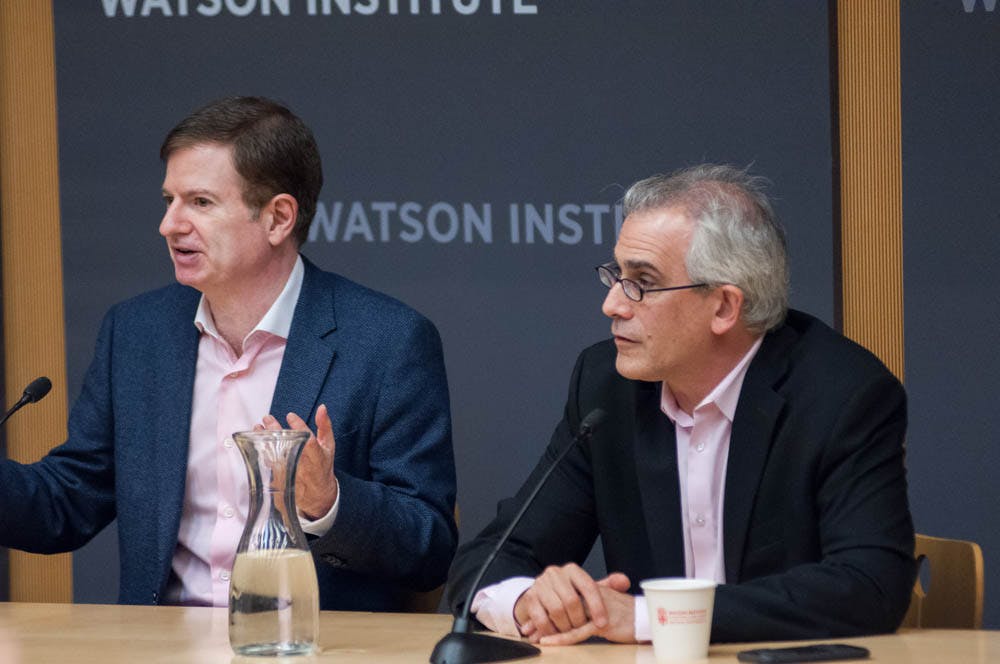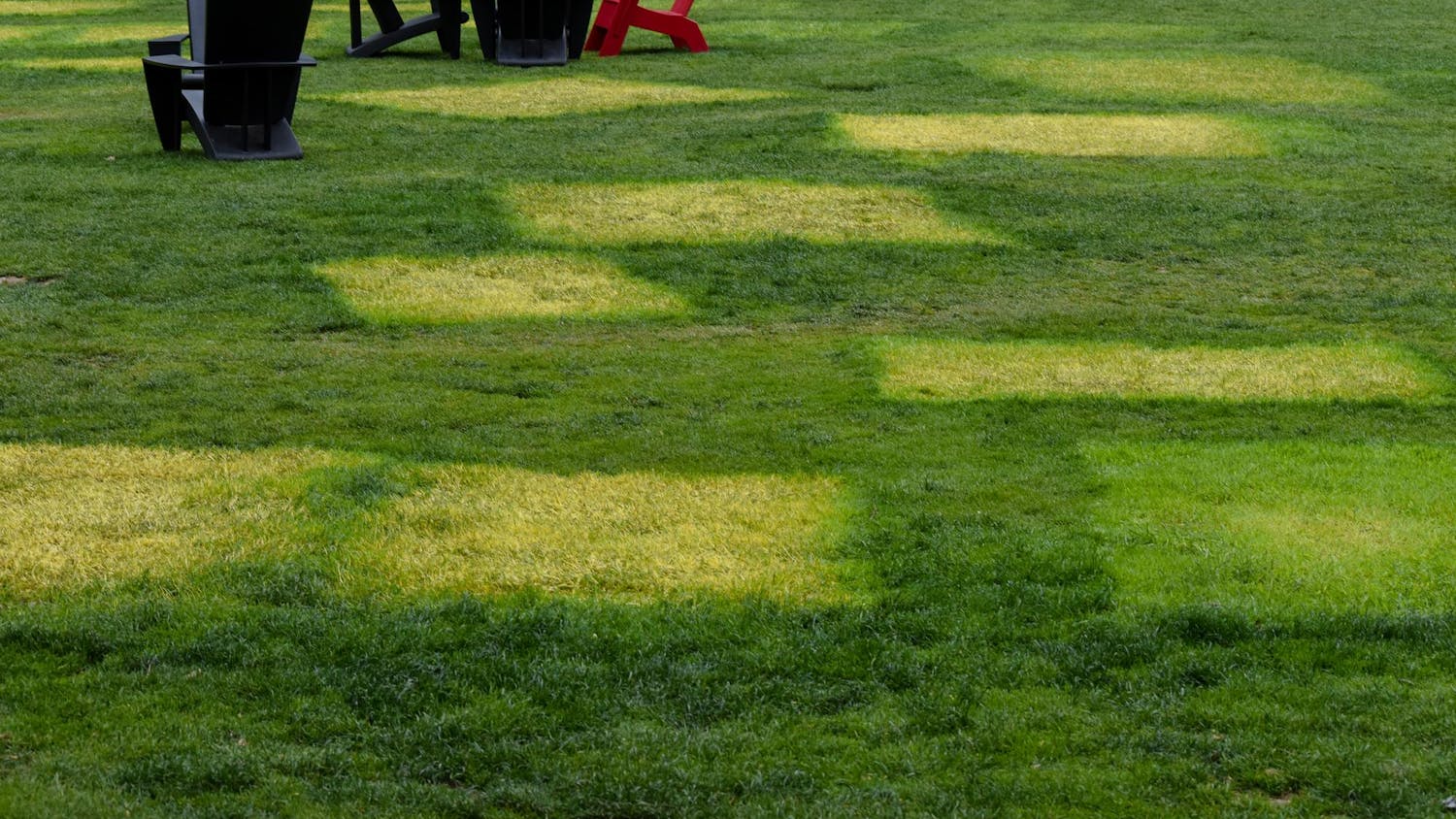Washington Post columnist Glenn Kessler ’81 spoke with David Corn ’81, the Washington bureau chief for Mother Jones, at the Watson Institute for International and Public Affairs Friday afternoon about the value and history of fact checking. Kessler, who writes the Post’s Fact Checker column, explained fact checking’s potential to change presidential candidates’ rhetoric while arguing that it does not always have that effect.
“If a politician thinks that they have a lie that will move voters, they will not change it in response to fact checking,” Kessler said. He gave various examples, including Mitt Romney’s running of a misleading ad in Ohio on welfare and Donald Trump’s insistence that he did not originally support the Iraq War.
The interview mostly focused on Trump, who has been repeatedly called out on fact checking websites and by most mainstream media outlets for his repeated twisting of the truth. The extent of Trump’s lies has been virtually unprecedented, Kessler said. Most politicians have a 15 percent pinocchio rating, the Post’s rating for utterly false statements. Donald Trump’s 65 percent pinocchio rating puts him in another league, higher than the last three Republican candidates combined, Kessler added.
Trump appeals to many of his voters because they agree with the lies that he is telling, Kessler said. “Memories and images are very easily manipulated. ... He is actually giving the facts that his supporters believe in even though they are not really facts at all,” Kessler said.
Corn, who was interviewing Kessler, raised the point that many believe Trump has made fact checking useless, as he seems to repeat the same lies over and over despite numerous fact checks from multiple sources. Kessler disagreed, pointing to Trump’s lower poll numbers and the unlikelihood of his election to the presidency. Trump’s success can be attributed to his long-held celebrity status and the rarity with which people vote against their parties in elections, Kessler said.
But many candidates are responsive to fact checks. For example, Clinton campaign staffers preemptively check with Kessler and his staff to ensure that Clinton is sticking to the truth. Additionally, both the Romney and Barack Obama campaigns in 2012 were often willing to discuss fact checks with Kessler, allowing the candidates to justify certain statements made during the campaign.
Kessler also discussed the history of fact checking. Previously, fact checking was buried in articles or cut altogether for space. The first dedicated fact checking website, factcheck.org, arose in part due to the controversy surrounding the Iraq War and the claim of nuclear development in Iraq. The Post’s fact checking column began in the 2008 election and was revived in 2011 due to its popularity.
The event was well-attended by individuals from the Providence community as well as Brown students.
Muhammad Omar Afzaal GS said he attended the event because it offered a different perspective on foreign policy in relation to the election, adding that he is particularly interested in the parallels between the Pakistani and American governments.
Victor Brechenmacher ’18 said that, during this year’s election, “fact-checking matter(s) the most and the least.”
“It’s been a crucial task for journalists to debunk blatant falsehoods put out by the candidates, and yet it seems like facts no longer have the kind of authority they’re supposed to have in rational discourse,” Brechenmacher added.





